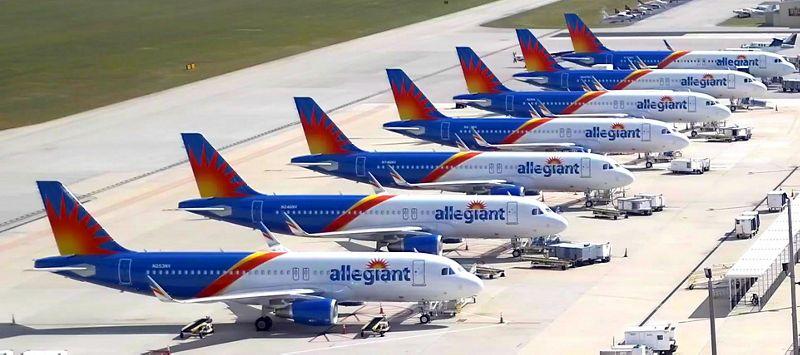
Credit: AirbusWASHINGTON—A group of U.S. Senate Democrats called on airlines to release an estimated $10 billion in full cash refunds for flights canceled by passengers owing to the COVID-19 pandemic.
U.S. Transportation Department regulations require airlines to issue cash refunds for all flights canceled by the company but allow travel vouchers as an alternative for flights canceled by customers. “Unfortunately, these travel vouchers do the public little good in this time of emergency, when Americans need money now to pay for basic necessities such as food, housing, and medical care,” the lawmakers said in a joint statement.
The senators arrived at the $10 billion amount by extrapolating figures provided by JetBlue Airways, which showed that the company issued roughly $20 million in travel credits per day in mid-March. The other 10 airlines queried by the lawmakers in their investigation did not provide their own figures, as requested. “If airlines dispute this exact figure, the Senators welcome more information from each company,” the lawmakers said.
While all carriers are offering cash refunds when the companies themselves cancel flights, only Allegiant Air and Spirit Airlines reported offering refunds to customers that voluntarily cancel their own tickets during the coronavirus crisis. None of the major carriers—American Airlines, Delta Air Lines, United Airlines or Southwest Airlines—reported doing the same.
Only one carrier—Hawaiian Airlines—is giving cash refunds to customers who cancel tickets on flights that are later canceled by the airline. At all other carriers, passengers who cancel their tickets for flights that never take off receive only travel vouchers. Such policies put customers in a “waiting game,” forcing them either to accept a travel voucher or hold onto their tickets and hope the airline eventually cancels so they can get refunded in cash, the lawmakers said.
The senators said they were “absolutely outraged” that so few carriers are willing to offer cash refunds to customers who cancel their flights, particularly in light of the “unprecedented multi-billion-dollar bailout” of the airline industry included in the Coronavirus Aid, Relief, and Economic Security (CARES) Act. JetBlue VP-partnerships, government & airport affairs Jeffrey Goodell pushed back against that characterization of the aid package, writing in response that “the program is hardly the bailout that your letter suggests.”
“Congress intentionally set up a payroll pass-through program to ensure that our crewmembers receive pay and benefits for six months, but only if a carrier pays for this privilege of keeping our crewmembers on the payroll at a time when there are virtually no customers, work and/or flights which would justify maintaining current levels of crewmember employment,” Goodell wrote.
Airlines for America president and CEO Nicholas Calio told the senators in a written response that “no two airline companies are the same,” adding that “each airline has crafted an approach it believes will best address the concerns and interests of its customers and crew, while ensuring compliance with federal rules.”
IATA has pushed back hard against demands for cash refunds during the crisis, warning they amount to a potential liability for the industry worth up to $35 billion in the second quarter alone. If all customers were to use the refund option in that time, the industry would burn up to $61 billion in cash within the next three months, IATA has said.
The senators investigating airline refund practices are Edward Markey (D-Massachusetts), Elizabeth Warren (D-Massachusetts), Richard Blumenthal (D-Connecticut) and Kamala Harris (D-California).



Ingen kommentarer:
Legg inn en kommentar
Merk: Bare medlemmer av denne bloggen kan legge inn en kommentar.